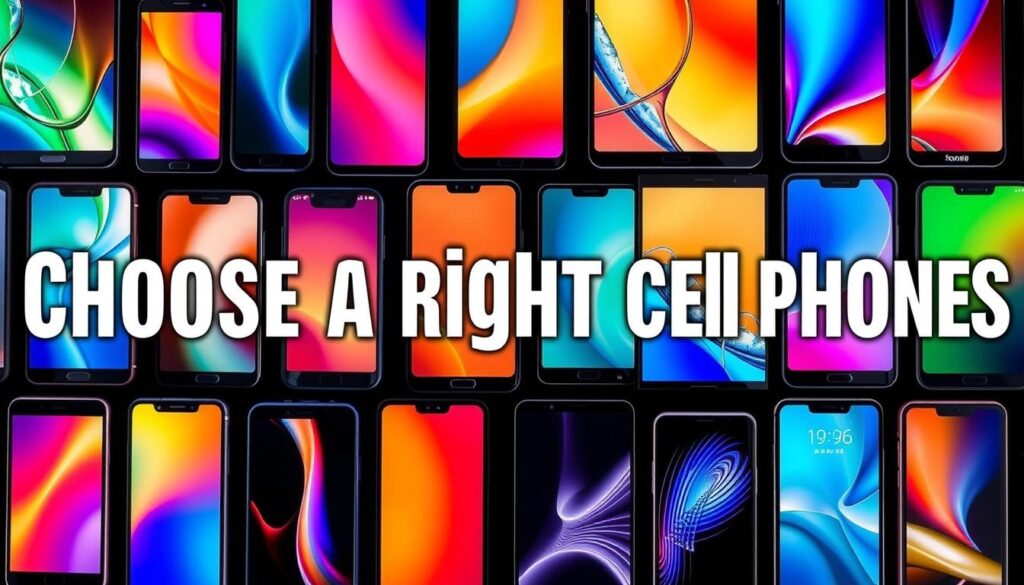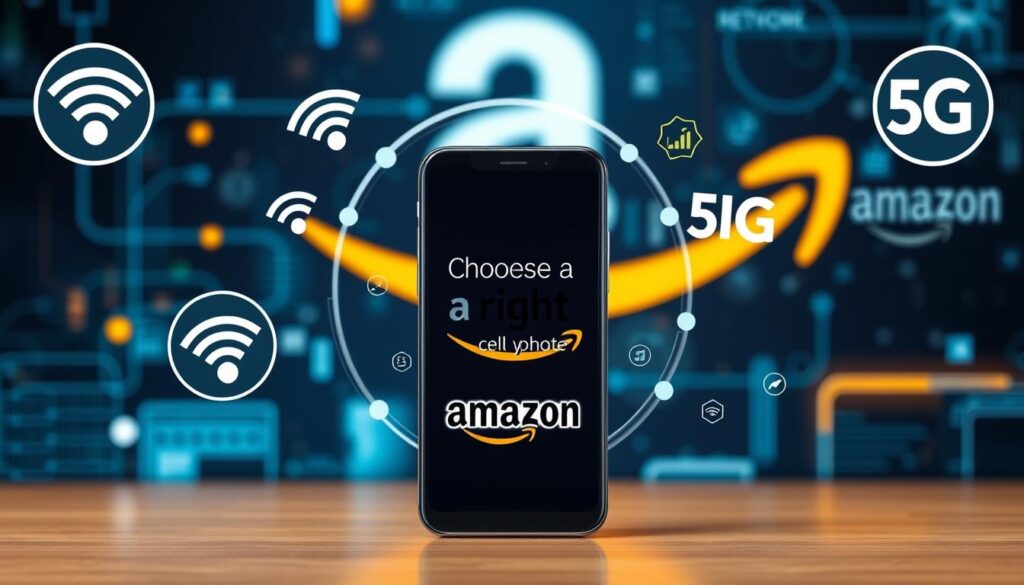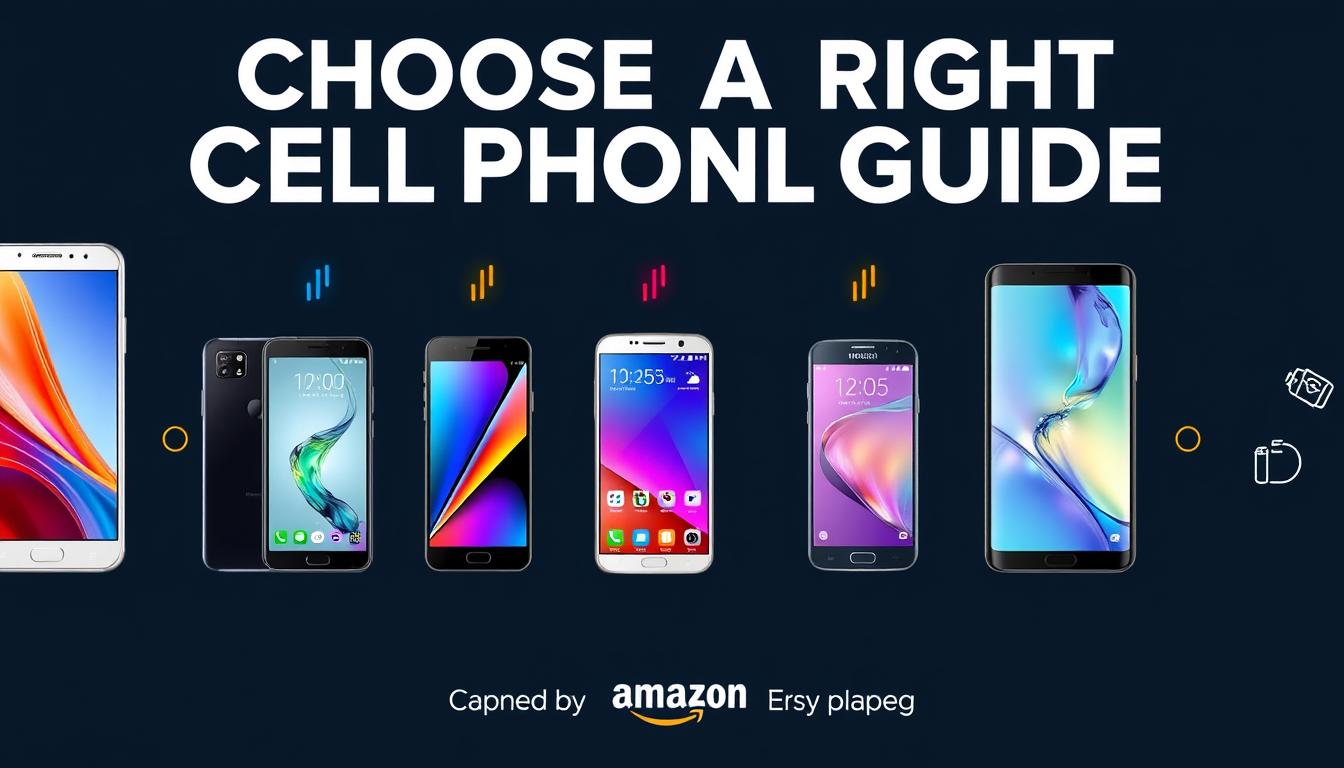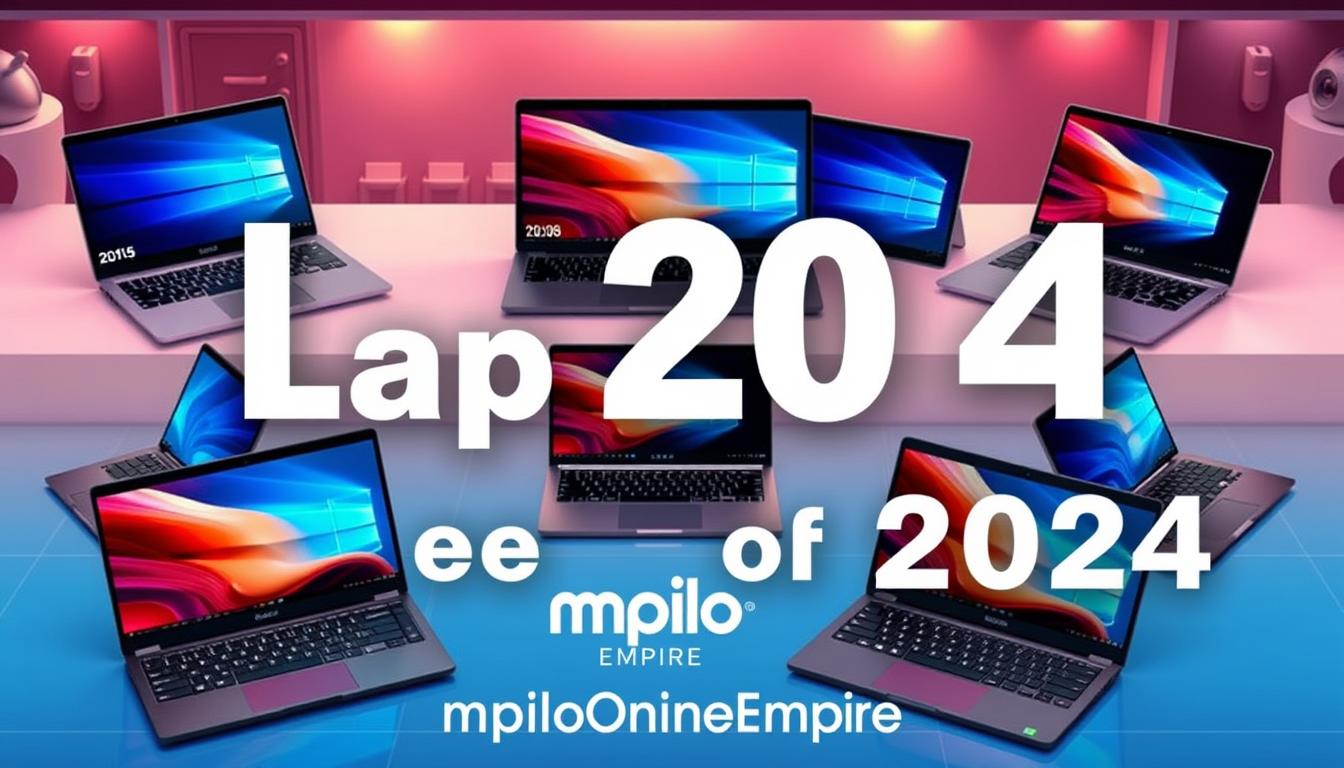Did you know the global smartphone market is set to hit $1.4 trillion by 2027? With so many choices, picking the right phone can be tough. As a professional copywriter, I’m here to help you find the perfect phone for your life.
In this guide, I’ll share tips and insights to help you choose your next phone. We’ll look at what you need, the tech specs, and compare operating systems. This will help you make a smart choice for your next mobile device.
Key Takeaways
- Know your daily needs to pick the right phone.
- Check the tech specs like speed, RAM, and battery to match your use.
- Compare Android and iOS to find the best for you.
- Look at camera, display, and design to meet your needs.
- Check network, connectivity, and price to get the best deal.
Understanding Your Smartphone Needs and Usage Patterns
Choosing the right smartphone starts with knowing your needs and how you use it. A user-centric phone evaluation is key to finding a phone that fits your lifestyle-based phone suggestions. Let’s explore the important areas to think about:
Daily Communication Requirements
Consider how you use your phone for talking and texting. Do you use it a lot for work calls and texts, or do you keep work and personal life separate? Knowing this helps you figure out what features are most important.
Professional vs. Personal Use Considerations
If you use your phone for both work and fun, finding a balance is crucial. Think about the apps you need, how much storage and power you require, and what design you prefer.
Entertainment and Media Consumption Habits
Do you stream movies, play games, or watch a lot of videos on your phone? Look for a phone with a great display, good speakers, and enough storage for your entertainment.
By understanding your user-centric phone evaluations and lifestyle-based phone suggestions, you’ll find the perfect smartphone for you.
“The key to finding the right smartphone is to understand how you use it in your daily life – both for work and play.”
Tips on how to choose the right phone based on different user preferences and bu
Finding the perfect smartphone can seem overwhelming. There are so many options and features out there. But, knowing what you need can help you pick the right phone for your budget and lifestyle. Here are some tips to guide you:
- Define your usage patterns: Think about how you’ll use your phone every day. Do you need it for video editing and gaming, or just for talking and social media? Knowing how you’ll use it helps you choose the right features.
- Prioritize must-have features: List the features you can’t live without, like camera quality, battery life, or screen size. This makes it easier to find phones that fit your needs.
- Set a realistic budget: Decide how much you want to spend on a new phone. You don’t have to buy the most expensive one to get a great phone. Affordable options can offer great value.
- Explore reviews and ratings: Look up online reviews and user feedback to learn about different phones. This helps you make a better choice and avoid surprises.
By using these tips, you can find a phone that fits your needs and budget. It will make using your phone a smooth experience.
| Feature | Importance for Heavy Users | Importance for Light Users |
|---|---|---|
| Processor Speed | High | Medium |
| RAM | High | Low |
| Storage Capacity | High | Medium |
| Battery Life | High | High |
| Camera Quality | High | Medium |
The best phone for you is one that matches your needs, preferences, and budget. Follow these tips to find a phone that will meet your expectations.
Essential Phone Specifications You Should Consider
Choosing a feature-focused phone means knowing the key specs. These specs can greatly impact your daily use. Let’s explore the important details to help you pick the right phone.
Processor Speed and Performance Metrics
The processor is the heart of your smartphone. It powers everything your device does. Look for phones with fast processor speeds, measured in GHz. They handle tasks like gaming and apps well.
Also, check performance benchmarks and ratings. This ensures your phone meets your needs.
RAM and Storage Requirements
RAM, or random access memory, is key for multitasking. For a smooth experience, aim for at least 4GB of RAM. 6GB or 8GB is even better.
Storage capacity is also important. It determines how much data and apps you can store. Choose a phone with enough storage, like 64GB, 128GB, or more.
Battery Life and Charging Capabilities
A good battery is crucial for all-day use. Look for phones with long battery life, measured in math. Also, make sure the phone supports fast charging for quick power boosts.
Wireless charging is a nice feature to have. It makes charging your phone easy and convenient.
By evaluating these specs, you can find the perfect smartphone. It will meet your needs and fit your lifestyle.
Comparing Operating Systems: Android vs iOS
Choosing the right smartphone means picking the best operating system. Let’s explore the good and bad of Android and iOS.
Android is great for those who love to customize their phone. It’s open-source, so you can change it to fit your style. Android has lots of apps and services, making it perfect for work or play.
iOS is known for its easy-to-use interface and how well it works with Apple devices. It focuses on keeping your data safe, making it a secure choice.
| Feature | Android | iOS |
|---|---|---|
| Customization | High | Low |
| App Availability | Extensive | Curated |
| Integration with Ecosystem | Moderate | Seamless |
| Security | Moderate | High |
Choosing between Android and iOS depends on what you want. Think about the apps you need, how you like to customize, and if it works with your other devices. This will help you pick the best phone for you.
Camera Features and Photography Capabilities
When choosing a smartphone, many people focus on the camera first. Whether you love photography or just like taking photos, a good camera is key. It can change how you see and capture the world.
Rear Camera Specifications
The rear camera is the heart of your phone’s photo power. Look for megapixels, aperture size, and lens count. More megapixels mean clearer photos, and bigger apertures help in low light and create cool effects.
Front Camera and Selfie Features
The front camera is vital for selfies and video calls. Look for high-resolution sensors, wide-angle lenses, and software tricks for better selfies.
Video Recording Capabilities
Many also care about video recording. Search for 4K, stabilization, and high frame rates for smooth videos.
| Specification | Importance | High-End Example | Mid-Range Example |
|---|---|---|---|
| Rear Camera Megapixels | Higher megapixels generally mean more detailed photos | 50MP | 32MP |
| Rear Camera Aperture | Larger apertures allow for better low-light performance and bokeh effects | f/1.8 | f/2.2 |
| Front Camera Megapixels | Higher megapixels lead to sharper, more detailed selfies | 32MP | 16MP |
| Video Recording | 4K video recording and advanced stabilization for professional-looking footage | 4K @ 60fps, OIS | 1080p @ 30fps, EIS |
When picking a phone, camera features are crucial. Whether you’re serious about photography or just like taking photos, the right camera matters a lot.
Display Technology and Screen Size Options
When looking to buy a mobile phone, the display technology and screen size are key. These factors greatly affect how you use your phone for work, fun, or daily activities. Let’s dive into the various display options available in today’s smartphones.
OLED (Organic Light-Emitting Diode) is a common display technology in phones. It provides vivid colors, deep blacks, and high contrast, making media and games look amazing. OLED also saves battery life, which is a big plus.
LCD (Liquid Crystal Display) is another popular choice. It has improved a lot and offers great visuals. LCDs come in many sizes, from small to large, fitting different user needs and preferences.
Smartphones come in a wide range of screen sizes, from 5 inches to 6.5 inches or more. Your choice depends on how you use your phone. Smaller screens are great for easy use and carrying around. Larger screens are better for watching videos and browsing the web.
| Display Technology | Pros | Cons |
|---|---|---|
| OLED |
|
|
| LCD |
|
|
Choosing the right display technology and screen size is important. It should match your needs and preferences. Whether you want the best visuals, something easy to carry, or a mix of both, there’s a phone for you.

Build Quality and Design Considerations
When choosing a smartphone, its design and build quality are key. Your phone should meet your needs and last through daily use.
Materials and Durability
The materials used in a smartphone affect its durability. Look for phones made from metal, glass, or high-quality plastics. These materials help resist scratches and damage.
Also, consider the phone’s weight and feel. A well-made phone should feel solid and balanced in your hand.
Ergonomics and Handling
Ergonomics are important for a good user experience. Check if the phone fits well in your hand and is easy to use with one hand. Look at the button placement and how the phone feels to hold.
Water and Dust Resistance
In today’s fast-paced world, water and dust resistance are key. Look for phones with high IP ratings. These phones can handle splashes, rain, and dust without issues.
By focusing on build quality and design, you can choose a phone that fits your needs. It should last through your daily activities.
| Material | Durability | Ergonomics | Water/Dust Resistance |
|---|---|---|---|
| Metal | High | Moderate | Moderate |
| Glass | Moderate | High | Low |
| Plastic | Moderate | High | Moderate |
Network Compatibility and Connectivity Features
Choosing the right smartphone means looking at network compatibility and connectivity features. These aspects greatly affect how well you can communicate and share data. They ensure smooth interactions across different networks and devices.
5G support is a key factor. This new network technology brings fast speeds, low delays, and better connectivity. Make sure your smartphone selection guide includes 5G models. This way, your device stays up-to-date with the growing 5G network.
Wi-Fi capabilities are also vital. Opt for smartphones with the latest Wi-Fi standards like Wi-Fi 6 or Wi-Fi 6E. These offer quicker and more stable wireless connections, even in busy areas or with many devices connected.
Bluetooth technology is another important aspect of mobile phone buying advice. Look for Bluetooth 5.0 or later. These versions improve range, speed, and power use for easy pairing with accessories, headphones, and other Bluetooth devices.
| Connectivity Feature | Importance | Key Considerations |
|---|---|---|
| 5G Support | High | Futureproof your device and take advantage of the latest cellular network technology |
| Wi-Fi Capabilities | High | Look for the latest Wi-Fi standards for faster and more reliable wireless connectivity |
| Bluetooth Version | Moderate | Ensure your smartphone supports the latest Bluetooth version for seamless pairing and connectivity |
By focusing on these network and connectivity features, you can choose a smartphone wisely. This ensures it meets your needs for communication, data, and device integration. It will improve your overall experience.

Price Range Analysis and Value for Money
Finding the right smartphone can be tough. You need to balance your budget with the features you want. Looking at budget-friendly phones and affordable options can help you find great value.
Budget Considerations
First, set a budget that fits your money. While high-end phones are tempting, cheaper options can offer great features. Look at mid-range and entry-level phones for good performance and battery life without spending too much.
Long-term Investment Value
Don’t just look at the price. Think about the phone’s long-term value. Consider updates, repairability, and resale value. These can make a big difference in the phone’s worth over time.
Available Payment Plans
If you can’t pay for a phone all at once, look at payment plans. Carriers and retailers offer these to help you get a better phone without a huge upfront cost. Just make sure you understand the terms to get the best deal.
By thinking about your budget, future needs, and payment plans, you can find a phone that’s both affordable and feature-rich. Check out budget-friendly and affordable options to get the best value for your money.
Brand Reliability and After-Sales Support
When you buy a mobile phone, reliability and after-sales support matter a lot. As someone who checks phones for users, I’ve seen how the brand you pick affects your experience. Let’s talk about why brand reputation and post-purchase help are key.
Not all smartphone brands are the same when it comes to reliability. Some make phones that last a long time, while others might have quality or software problems. It’s smart to look up reliability ratings and what other customers say before buying. This mobile phone buying advice helps you avoid tech troubles later.
Good after-sales support is also important. A reliable brand should have a solid warranty, easy-to-reach customer service, and repair centers. This user-centric phone evaluations means you can fix problems fast and feel secure with your phone.
| Brand | Reliability Rating | Warranty Coverage | Repair Center Availability |
|---|---|---|---|
| Apple | 4.8/5 | 1-year limited warranty | Extensive network of Apple Stores and authorized service providers |
| Samsung | 4.6/5 | 1-year limited warranty | Authorized Samsung service centers in most major cities |
| 4.4/5 | 1-year limited warranty | Limited authorized repair options, mostly relying on mail-in service |
Thinking about brand reputation and after-sales support helps you choose wisely. A reliable brand with great customer service means fewer problems later. It’s worth the investment for a better phone experience.
Latest Technology Trends and Future-Proofing
Exploring the world of smartphones, I’m drawn to the latest trends. These trends promise to change how we use mobile devices. From 5G networks to new features, picking a phone that stays relevant is key.
5G Compatibility
5G technology is changing mobile connectivity. It offers fast speeds, low latency, and reliable networks. I’ll look for phones that support 5G to enjoy these benefits.
Emerging Features
New features like foldable screens and AI assistants are exciting. They show how smartphones are evolving. I’ll choose a phone that fits my needs and stays up-to-date.
Software Update Policies
Software updates are vital in today’s tech world. I’ll check how often phones get updates. This ensures my phone stays secure and runs smoothly.
FAQ
What factors should I consider when choosing the right phone for my needs?
When picking a phone, think about how you use it every day. Look at your communication needs, whether it’s for work or fun. Also, think about how much you watch videos and listen to music.
How can I choose the right phone based on my budget?
To find a phone that’s both good and affordable, decide what’s most important to you. Look at phones that cost less but still offer what you need. Check the processor, RAM, storage, and battery to make sure it meets your daily tasks.
What are the key technical specifications I should look for in a smartphone?
When checking out a phone, focus on the processor speed, RAM, storage, and battery life. These things affect how well the phone works and your overall experience.
How do I compare the Android and iOS operating systems to find the best fit for me?
Android and iOS have their own good points and bad points. Think about the apps you like, how customizable you want your phone to be, and how well it works with other devices. This will help you choose the right one for you.
What camera features should I prioritize when choosing a smartphone?
Think about how important camera quality is to you. Look at the camera setup, including both the back and front cameras, and video recording. Choose a phone that meets your photography and video needs.
How do I evaluate the display technology and screen size options available in smartphones?
Look at the display resolution, color accuracy, and refresh rates. These affect how good the screen looks for work and fun. Also, think about the screen size to see if it fits your hand and preference.
What should I look for in terms of build quality and design when choosing a smartphone?
Check the phone’s materials, how durable it is, and how it feels in your hand. Also, consider if it can handle water and dust. This ensures your phone can keep up with your daily life.
How important is network compatibility and connectivity features when selecting a smartphone?
Network compatibility and connectivity options are key. Make sure the phone supports 5G, has good Wi-Fi, and Bluetooth. This ensures you can connect easily to different networks and devices.
How can I find the right balance between price and value when selecting a smartphone?
Look at different price ranges and what you get for your money. Think about the long-term value and payment plans. This way, you can find a phone that’s affordable without missing out on important features.
What should I look for in terms of brand reliability and after-sales support when choosing a smartphone?
Research different brands and their reputation for reliability and support. Look at warranties, customer service, and repair centers. This ensures you have a good experience with your phone.
How can I future-proof my smartphone purchase and stay up-to-date with the latest technology trends?
Keep up with the latest tech trends and features. Consider 5G compatibility and software updates. This way, your phone will stay useful and up-to-date for years.



